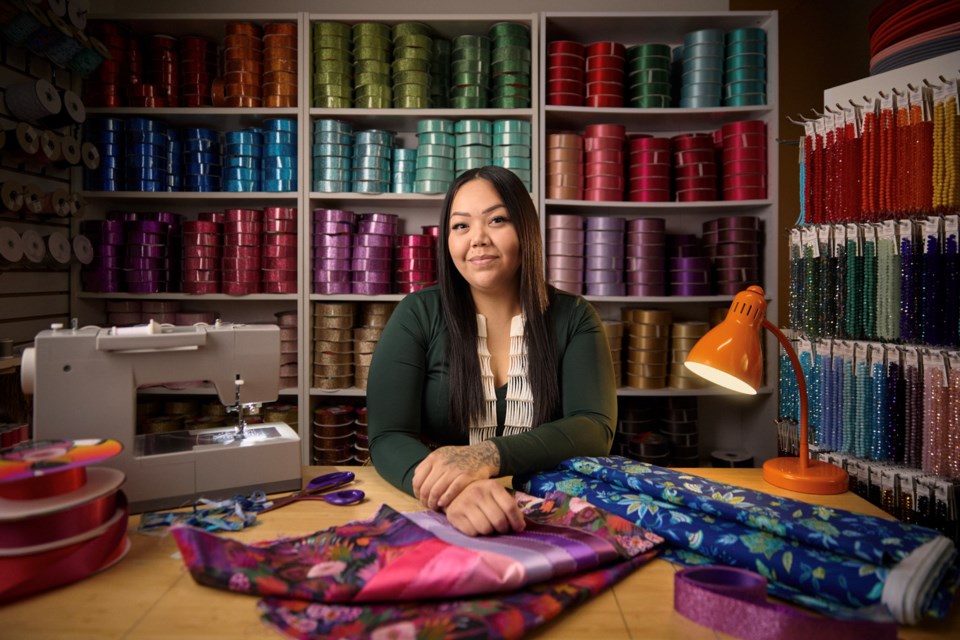When Tyler Hepple posted a short video on TikTok three years ago showing how potatoes are farmed, he didn’t expect it to go viral.
Today, Hepple’s Potatoes Corporation, a Surrey-based family farm, posts regularly on the platform and has more than 788,500 followers eager to learn about the farm’s behind-the-scenes operations and B.C.’s potato industry.
“I want to show people how agriculture works so they’re more connected with their food,” said Hepple, who manages operations at the farm. “And it’s kind of fun.”
Hepple is one of a growing number of B.C. small business owners using TikTok to build brand awareness and connect with customers.
From 2019 to 2024, small businesses contributed $228.2 million to B.C.’s GDP through TikTok—placing the province third in Canada after Ontario and Quebec, according to a recent report from the social media platform.
Krystin Lee, president of the Vancouver-based communications agency Talk Shop Media, said she is seeing growing interest from local businesses looking to tap into TikTok. Despite ongoing uncertainty over its potential ban in the U.S., the platform’s reach is immense and currently hosts about 1.5 billion users around the world.
Lee said TikTok puts up far fewer barriers to brand growth compared other social media platforms. It also offers a stronger opportunity to go viral and develop “real community,” she said.
“It’s almost the platform for the underdog brands,” said Lee.
Unlike Hepple, who used TikTok to promote a long-standing family business, Vancouver entrepreneur Lux Perry has used the platform since the launch of their period pain relief company Somedays.
“TikTok was an essential part of our strategy from the beginning,” said Perry. “We knew we couldn’t just provide period products—we had to start a new conversation around period pain and menstrual health. TikTok… was the perfect platform to do that.”
Perry’s team posted a series of videos showing people—from employees to strangers on the street—trying a period pain simulator to show how intense menstrual pain can be. The videos went viral, sparking millions of comments and personal stories from viewers.
“This created a highly engaged community that helped lay the foundation for our brand,” said Perry, whose company now has more than 759,800 followers on the platform.
Authenticity over perfection
B.C. businesses that have successfully built a presence on TikTok say authenticity and consistency are key to standing out.
“If you’re going to use TikTok, you really do have to be true to yourself, your values and who you are as a person. And people will see that,” said Ashley Michel, founder and owner of 4 Generations Creations, an Indigenous arts and crafts supply store in Kamloops with 179,000 followers.
Michel’s business has grown from a home-based operation to a 2,200-sq.-ft. retail store with more than 10 employees. She attributes much of that growth to her storytelling on the platform.
“I’ve tried following trends that other people were doing, but they just weren’t who I am, and those videos didn’t perform well,” she said.
According to Lee, TikTok users respond well to brand origin stories and like seeing the faces behind them.
Unlike other platforms that favour polished, aesthetic shots, TikTok audiences prefer videos that feel real—footage shot with a smartphone that’s minimally edited and has a human touch, she added.
“There’s still an aspect of entertainment on this channel. You need to be humble and lean into the humour and not be afraid of making fun of yourself,” Lee said.
When brands bring a “stuffy” approach to TikTok, people “smell it from a mile away,” she added.
For Perry, being “unapologetic” about a company’s mission works far better than trying to be a “safe brand” on a platform dominated by Gen Z and millennials.
Despite TikTok’s wide reach, the platform remains under pressure in the U.S., where it has been ordered to divest from its Chinese parent company or face a ban by September 2025.
Even under a worst-case scenario, Lee doesn’t expect TikTok to disappear. Still, she said businesses should have a plan B. She also recommends small businesses have a crisis communications plan in place.
As Lee put it, “if the platform were to go away tomorrow, where are you redirecting everybody in the interim?”

